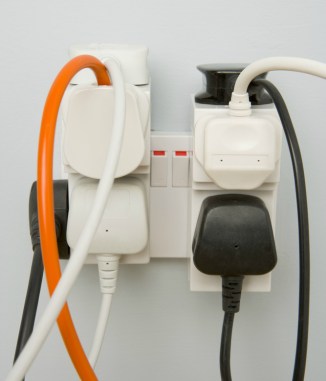 It seems that Brits can’t get enough of their gadgets. A report by the UK’s Energy Saving Trust, an NPO that promotes the use of sustainable energy, says that despite a greater awareness of ways to save energy in the home, many British citizens are so addicted to their gadgets that energy bills and emissions are on the rise.
It seems that Brits can’t get enough of their gadgets. A report by the UK’s Energy Saving Trust, an NPO that promotes the use of sustainable energy, says that despite a greater awareness of ways to save energy in the home, many British citizens are so addicted to their gadgets that energy bills and emissions are on the rise.
According to the Energy Saving Trust’s report (pdf), titled The Elephant in the Living Room, targets for cutting home energy use by 34 percent before 2020 are in jeopardy as a result of the growing popularity of items such as personal computers, large refrigerators and smartphones.
Commenting on the report’s findings, its author Dr Paula Owen said: “If we look over the last five years a lot has changed and a lot of progress has been made making the most energy-sapping appliances more efficient. But where we still have a long way to go is with our gadgets and home entertainment appliances, which are using more and more electricity.”
The report says that the main culprits so far as energy guzzling goes are large plasma televisions, giant refrigerators, wireless routers that are left switched on, and tumble dryers.
Analysing the data in the report, the Guardian found that “the number of domestic gadgets and appliances in the average UK household increased by three and a half times between 1990 and 2009, according to the report, and overall energy consumption from consumer electronic goods rose by more than 600% between 1970 and 2009.”

While many UK consumers are replacing old electrical items with ones that are more efficient, they have so many more gadgets and machines than a few years ago that inevitably more electricity is being used to power them.
According to the Guardian, the report also reveals that electricity use by computers in the home more than doubled between 2000 and 2009. However, while laptop ownership may treble in the next eight years, it should result in reduced power consumption as newer models will use about 15 percent less energy than larger present-day desktop machines.
If UK consumers are unable to curb their love of gadgets in the coming years, the only way energy consumption will be reduced is if the new products are super efficient.
Owen told the Guardian: “To achieve our targets for 2020 we are going to have to try harder….if we continue like this we are not going to make it.”
[Photo courtesy of Monkey Business Images / Shutterstock]


